Dalí’s Clocks
Dave Hutchinson
I met Dave back in 2005 at the Interaction WorldCon in Glasgow. He was hanging around with what I will call — for lack of a better term — the ‘Chris Roberson’ gang and as we discussed several things over drinks he gave me a copy of As the Crow Flies, which I found was full of great stories.
Last year, I was quite chuffed when Ian Whates asked me to write an intro to Dave’s novella “The Push” (recently released via Newcon Press), but unfortunately the economics of sending signing sheets across the pond were prohibitive. So while Eric Brown took that honour, I’ll give a short appreciation of Dave here.
When I read As the Crow Flies and The Villages, I had the impression of Dave being a quintessential British writer, and I mean that in a very good way. British in the sense of observing something out of the ordinary, and instead of being appalled, rather being fascinated with it. Even if the extraordinary goes to extremes like “The Pavement Artist” or “The Trauma Jockey”.
Quite unlike the typical Dutch (and Australian) ‘tall puppy syndrome’, Dave displays, instead of a ‘sense of fear’, rather a ‘sense of wonder’ at the strange encounters crossing his path. It is British in the sense that he is not only very tolerant of the village eccentric, but also genuinly interested in that person.
That impression, that of Dave as the quintessential Brit, proved not to be totally accurate, as he sent me a very European story: while initially set in Gdansk, the story moves to Belgium, Italy and basically all of Europe. “Dalí’s Clocks” is, like “The Gender Plague”, about an engineered virus on a rampage. While the symptoms of this are very different than those in KD Wentworth’s story (and while both have their tongue firmly in cheek, a serious undercurrent runs through them, as well), the overall effect seems to be going in a similar direction…
(NB: special thanks to Susan Garvie for letting me use the image of her ‘Confused Cat’!)
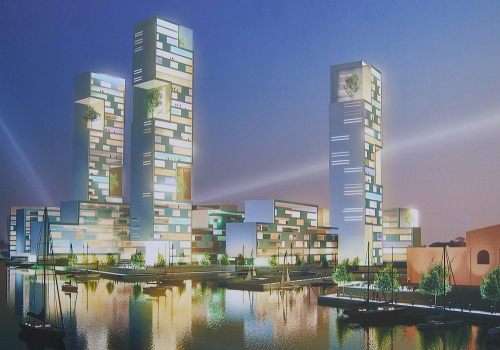 I was living in Gdansk back then, in a newish block of flats overlooking the Warta just outside the Old Town. In the mornings I could sit on my balcony and eat breakfast while the fake pirate boats took tourists downriver to take photographs of the old fortifications at Westerplatte. Evenings, I could wander through Hanseatic splendour, take my pick of hundreds of remarkably fine restaurants, cross the river to the concert hall to attend a performance by the Baltic Philharmonic, visit art galleries, catch a film. Good times, and I took it all for granted.
I was living in Gdansk back then, in a newish block of flats overlooking the Warta just outside the Old Town. In the mornings I could sit on my balcony and eat breakfast while the fake pirate boats took tourists downriver to take photographs of the old fortifications at Westerplatte. Evenings, I could wander through Hanseatic splendour, take my pick of hundreds of remarkably fine restaurants, cross the river to the concert hall to attend a performance by the Baltic Philharmonic, visit art galleries, catch a film. Good times, and I took it all for granted.
These days, I don’t really live anywhere. Or rather, I seem to live everywhere. In every town I visit, every city, every one-horse hamlet, a welcome is waiting for me. Hotels throw their doors open to me, private citizens unroll the red carpet. I haven’t had to pay for a meal or a night’s lodging in almost eight years. The clothes I wear, the car I drive, the cigarettes I smoke and the beer I drink are all gifts, pressed on me by a populace either eager to curry favour or to express its gratitude. You’d think it would become wearying, but you’d be wrong; there is nothing in this world better than never having to pay for anything ever again. And trust me, having people hanging on your every word, your every opinion, never ever gets old.
On the other hand, I’m on the road all the time. I have no choice. If I didn’t go to them, they would come to me, and that would become wearying.
Back then, I had a little architects’ practice. The first wave of post-Communist rebuilding in Poland had crested and a lot of ambitious, hungry little firms were following it up. There were a lot of neo-Hadid public buildings going up, and down in Kraków it seemed as if every other office block had been presided over by the spirit of Norman Foster.
In Gdansk we were, I thought, a little more original, although there was a fashion for Baltic Baroque, bits of architecture looted from up and down the coast. I’d designed some of those buildings myself, and been paid handsomely for them. And when I drove past them I knew those hungry, ambitious little firms were already planning for the next wave, because that was what I was doing, too.
I don’t design buildings any more. The world is full of architects these days, most of them completely talentless but all of them supremely enthusiastic. And that … that does become wearying.
Ten years ago, on the morning that Marcin walked into my office and invited me to the party, I was working fourteen-hour and sometimes eighteen-hour days in order to get ahead and stay ahead. I was still young. I reasoned I could maintain this for a few years, build myself a healthy bank balance and a healthy reputation, then take my foot off the accelerator a little and enjoy my life.
It was ten to eight in the morning and I had already been in the office for more than an hour when I looked up from whatever it was that I was doing — I’ve forgotten what it was — and saw a familiar bulky figure with tousled sandy hair talking to Agnieszka, our receptionist.
I got up from my desk and walked across the office, and as I approached the figure looked up from speaking to Agnieszka and grinned at me. “Hey, Jarek,” he called when I was still only halfway across the office. “Want to go to a party tonight?”
*☼*☼*☼*
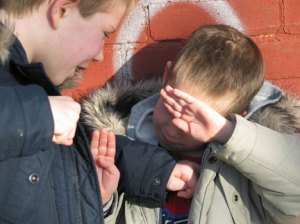 At school, Marcin had been one of those big soft boys who seem designed by Nature for the express purpose of attracting bullies. The first time I ever saw him he was eleven years old and two thirteen-year-olds were beating him up in the playground for no other reason than it was fun. I was on my way to a History lesson and I was two days short of my fourteenth birthday and this unknown fat boy’s plight was nothing to do with me and I kept on walking.
At school, Marcin had been one of those big soft boys who seem designed by Nature for the express purpose of attracting bullies. The first time I ever saw him he was eleven years old and two thirteen-year-olds were beating him up in the playground for no other reason than it was fun. I was on my way to a History lesson and I was two days short of my fourteenth birthday and this unknown fat boy’s plight was nothing to do with me and I kept on walking.
And then I stopped. I stood listening for a few moments as the two boys slapped the fat boy and I have no idea why I did what I did next.
I turned and said, “Leave him alone.”
One of the bullies, a nascent football hooligan named Franek, looked me up and down and said, “Fuck off, Jarek.”
I turned to face them properly. Franek’s companion was a near-imbecile named Piotr who had only just been allowed back to school after being excluded for beating up another boy. I said, “Leave him alone,” again, and Piotr gave me a ghastly expectant grin.
I wish this little tale had a happy ending, but I spent the next three nights in hospital with broken ribs and a suspected concussion. On the other hand, Franek and Piotr were never seen at school again and the day I left hospital Marcin was waiting for me outside with a shopping bag for me full of CDs and DVDs he’d pirated from the internet.
*☼*☼*☼*
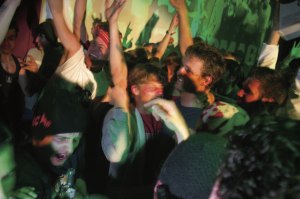 “You work too hard,” Marcin told me.
“You work too hard,” Marcin told me.
“What?” I said.
“I said you work too hard!” he said in a loud voice that I could barely hear over the party’s sound system.
I shook my head. “It’s only for a little while.”
“What?” he said.
“Oh, for—” I grabbed him by the elbow and steered him through the people crammed into the flat. The flat wasn’t very large, but a surprising number of people seemed to be here. The sound system was pumping out death metal and someone had filled the bath with vodka and ice and the party was full of people like … well, like me, actually. Young professionals, comfortably-off, letting off steam. Parties like this were called ‘hit-and-runs’; many of Gdansk’s elderly Soviet-era blocks were almost empty, the residents moved to other developments and the buildings awaiting demolition. A shell company took out a short-term lease on a flat, enormous amounts of alcohol and recreational drugs were moved in, and for one night only it was party, party, party. If anyone bothered to complain about the noise and the police bothered to turn up it would transpire that no one at the party actually lived at the flat, and further investigation would reveal that the shell company which had rented it had already been dissolved and its principals had never existed anyway.
I dragged Marcin through the mass of heaving bodies towards the front door, which was not easy to do for two reasons. Firstly, there were a lot of heaving bodies. And secondly, he was a big man. He wasn’t fat any more, but he was tall and bulky, like an amiable bear. He was wearing designer jeans and a white shirt and a jerkin of butter-soft leather. After university, he’d gone to work for a little biotechnology company in Belgium, and from his clothes it looked as if they were doing well.
Finally, we reached the door and stepped out onto the landing, where we could finally hear each other.
“Do you know whose party this is?” I asked.
He shrugged.
“It was your idea to come here,” I said.
“You know how these things work,” he said. “Anonymised emails, posts on bulletin boards. Nobody ever knows whose parties they are.”
There was shrieking behind us. We looked round and two topless girls were standing side by side in the doorway. “Hey, Marcin!” shouted one. “Great party!”
Marcin grinned and waved hello and the girls turned and plunged back into the flat.
“Okay,” he said. “It’s my party. But don’t tell anybody.”
I was staring at the naked backs of the two girls as they half-walked, half-swam through the press of bodies. I was fairly certain that I had last seen one of them in the newspapers, receiving an award as Young Polish Entrepreneur Of The Year.
“I’ve got something for you,” Marcin said.
I smiled. Marcin’s company developed what used to be called ‘designer drugs,’ and down the years he had been a fairly reliable source of pre-release medications. Most of them had been of limited use to me, but he had been responsible for several evenings of chemically-induced happiness. He didn’t come home all that often these days, but when he did he usually had a present for me, a successor to those CDs and DVDs he’d given me when I left the hospital.
He reached into a pocket of his jerkin and took out a little plastic envelope and handed it to me. “There you go,” he said. “A taste of the future.”
“What does it do?” I asked, turning the little envelope over in my fingers.
The sound system emitted a single huge chord that reverberated through the building as he said, “It’s paint medication,” he said.
“I’m not in pain,” I told him.
“No,” he said a little louder. “Not pain, paint. Paint medication.”
“I beg your pardon?”
He sighed. “Do you want it or not?”
I thought about it. He had never brought me anything harmful. I tore the edge off the envelope and tipped its contents into my palm. It was an odd-looking tablet. Round and thin, a couple of centimetres across, and made of some gelatine substance. It was floppy, which in my experience was an unusual attribute for a medication.
I put the floppy tablet in my mouth and it melted on my tongue. It tasted very faintly of kiwi fruit. I looked at Marcin and raised my eyebrows.
He grinned. “There you go,” he said and he put his arm around my shoulders and started to steer me back into the party. “Now, let’s see if there’s anything left in the bath…”
*☼*☼*☼*
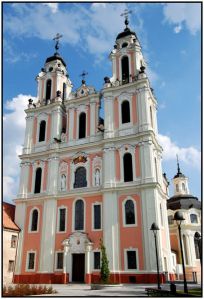 I regained consciousness the next morning and my phone was ringing. I lay where I was, eyes closed, for quite a while waiting for the ringing to stop, but it didn’t. Finally, without opening my eyes, I reached out to the bedside table, picked up the phone, and after some fumbling located the little button that turned it off. Then I lost consciousness again.
I regained consciousness the next morning and my phone was ringing. I lay where I was, eyes closed, for quite a while waiting for the ringing to stop, but it didn’t. Finally, without opening my eyes, I reached out to the bedside table, picked up the phone, and after some fumbling located the little button that turned it off. Then I lost consciousness again.
Some time later, I became aware that the entryphone by the front door was buzzing. I didn’t know how long I’d been awake; it seemed, at the moment, that I had been listening to that buzzing noise all my life.
I waited for the buzzing noise to stop. I waited a long time. It stopped. Some time passed. The buzzing started again. I opened my eyes as far as they would go, which wasn’t very far at all. Down on the river, a speedboat went by and it felt as if the noise was scalping me. I became aware that something awful had happened in my mouth over the past few hours, and now all my taste-buds were misfiring. Meanwhile, the buzzing went on and on and on.
I closed one eye again, which made things a little more bearable, although not by much, and rolled off the futon onto the floor, where I briefly fell asleep again until the buzzing brought me round.
Slowly, I rolled over onto my stomach, and from there managed to lever myself up onto my hands and knees, and in that position it was a crawl of only a couple of light-years to the front door, where I slapped at the button to open the downstairs door.
A minute or so later, there was a knock on my door. From where I was sitting, I pawed at the lock until it clicked. “Open,” I managed to say, and then I was sick in my lap.
The door opened and Marcin stepped into the hallway. He saw me sitting slumped against the wall and he shook his head. “And you call yourself a Pole,” he said. He looked almost painfully bright and clean. He knelt down beside me. “Here,” he said, holding something out between his thumb and forefinger and pressing it to my lips. “Take this.”
Whatever he was holding made it between my lips and I swallowed reflexively.
I’m not sure I can describe what happened next without it sounding like an hallucination, but a sensation began at the soles of my feet and travelled like a wavefront up my body. It was as if all the crap and pain and poison and illness and fatigue was carried ahead of the wave, and when it reached the crown of my head it fountained up into the air and I was crystal-clear sober again. As far as I could judge, the whole thing took less than five minutes.
“What the fuck was that?” I asked.
“Can’t say, I’m afraid,” Marcin said, reaching a hand down to me. “There are copyright issues. You need a shower.”
I looked down at my lap. “Hm,” I said.
It was, as it turned out, the most extraordinary shower I had ever taken. It was as if my skin was a drumhead; I felt every individual drop of water hitting my body. I could smell each ingredient of the shower gel I used. I became fascinated by the grout between the tiles of the shower because I could see the way its surface had crystallised as it set. Everything was pin-sharp, as if a gale had howled through my head and blown away a fog.
Stepping out of the shower, I smelled coffee. Marcin had obviously decided to make himself at home.
“Coffee,” I said, walking into the kitchen towelling my hair.
Marcin was sitting at the table, a steaming mug in front of him. “You don’t want to drink coffee after what I just gave you,” he said. “Your heart couldn’t take it.”
“I just want to taste it,” I said, and I picked up his mug and took a sip and it was the most extraordinary thing I had ever tasted. I didn’t have the language to describe the experience.
I put the mug down and sat across the table from him, draping the towel around my neck. “How long is this going to last?”
He shrugged. “Different subjects metabolise it differently. If you’re in the median, you’ve got another hour and a half or so, then you’ll be back to normal, but without the hangover. In about twelve hours you’ll crash and sleep like a baby.”
“Have you got any more?”
He looked levelly at me. “What I just gave you is at least five years away from human trials. I could go to prison for the rest of my life just for giving you that one tab. And you ask me if I’ve got any more.”
“Excuse me?” I said. “`Human trials’?”
“We’ve just started testing it on lab animals,” he said.
“You’re giving it to monkeys.”
“Primates next year. So far we’ve been giving it to rats.” He shook his head at the expression on my face. “Did it work?”
“Hell, yes,” I said.
“Well then,” he said, and took a drink of coffee. He put the mug back down on the table. “I’ve been taking it for the past six months, on and off. I know it’s not dangerous.”
I was appalled, which with my current clarity of mind was even worse than it might normally have been. “You had no right to do that,” I said. “But thank you.”
He inclined his head.
“And thanks for cleaning up.” I could smell the individual ingredients of the soap and disinfectant he’d used to clean the mess I’d made.
“Don’t mention it,” he said.
I said, “If you’ve been taking it for six months, you must have a steady supply.”
“Jarek,” he said, “stop it. That was your last dose until it goes into production. I only brought a couple of tabs out of the lab, and that was my last one. You’ll have to be patient.”
I looked around the flat. It seemed as if I had never looked at it properly before. “This is genuine doors of perception stuff, isn’t it,” I said wonderingly.
“Jarek,” he said. “Jarek. Look at me, Jarek.”
I looked at him.
“How do you feel?” he asked.
“I feel marvellous,” I told him. “I thought we’d established that.”
He shook his head irritably. “No, no. Do you have any urges? Do you feel as if you have to capture how you feel in verse or prose? Do you need to draw something? Is there a tune going through your head?”
I shrugged. “No.”
“No urge to jot down some brilliant ideas for new houses?”
I shook my head.
Marcin scowled and drank some more coffee.
“What?” I said. “I’ve never felt so well in my entire life, you tell me it’s only going to last another…” I looked at the clock on the microwave “…hour and a quarter, and I’m wasting it answering stupid questions. I should be…” I stood up. “Fuck you, Marcin. I’m going to enjoy this while it lasts.”
Down the years, I have blamed Marcin for many things, with justification. But I will always thank him for that hour and a quarter, because the city of my birth had never looked as beautiful as it did on that Autumn morning.
We walked along the river for a while, then turned through the gateway into the Long Market. It was a miracle we made it that far; I couldn’t stop smelling the air and looking at things and touching things, rejoicing in the pure sensory signals. Imagine suffering a minor eye problem all your life, something you could easily overcome in your everyday life, and then one day you have surgery to correct it and for the first time you see the world properly. That’s what it was like, for all my senses. I was torn between standing very still and looking very carefully at everything I could see, and rampaging along ulice Mariacka and looking at everything.
In the end, I compromised. We went up Mariacka towards the Cathedral and I couldn’t stop smiling. The designs of the old Hanseatic buildings made sense to me in a way they never had before, and they sparked off a cascade of ideas for new designs. It was the loveliest day.
All the time, Marcin was talking, but I was barely listening. I checked my watch. “Restaurant,” I said.
“What?” he said.
“Restaurant. I’ve only got forty minutes left.” I looked around me. Crowds of tourists from all over northern Europe, tall old buildings, stall after stall selling amber jewellery and knicknacks, coffee bars.
Marcin sighed. “Have you been listening to me?” he said.
“What?”
He shook his head and grabbed me by the sleeve. “Here,” he said, and he dragged me down a side-street.
“No,” I said, realising where we were going. “That’s a terrible place. No, I’ve got a better idea.”
As it turned out, my better idea was closed for renovations, so we wound up in a little Ukrainian restaurant on a square just beside the Cathedral. The place was dark and quiet and down two flights of stairs and to me it felt like descending into a warm, velvety bath of sensory impression, intense cooking smells, buttery lamplight shining off porcelain and silverware, the weave of the tablecloth under my fingertips. I could have sat there all day, but instead I ordered quickly for both of us and then I sat drumming my fingers on the tabletop and checking my watch waiting for the food to arrive.
Marcin sat watching me with a sour look on his face. “You know,” he said, “I wish I’d never given you that stuff.”
“I don’t,” I told him. “This is the best thing that’s happened to me in … oh, ever such a long time. When are you going to put it on the market?”
“It probably won’t be all that widely available,” he said.
I raised an eyebrow.
“Have you any idea how much it cost to develop that tab?” he asked. “No, you don’t, and you’d never be able to guess. It’s not meant to be a hangover tablet. It’s a cognitive enhancer; it’s meant for fighter pilots, battlefield troops, astronauts. The hangover thing’s a side-effect, that’s all.”
“I think your employers need some tips on marketing,” I told him.
He shrugged. Then he leaned forward slightly and said, “Have you ever wondered where creativity comes from?”
I was looking at my watch again. “Sorry?”
He sat back. “Am I going to have to come over to that side of the table and shake you by the ears, Jarek?”
I put on an attentive expression.
Marcin started to say something, thought again, started to say something else, closed his mouth. Then he said. “You remember Mirosław Sierpinski?”
“Mirek? Sure.” Mirek Sierpinski had been in the same as me at school. “Hey, did you hear he’s up for a Pulitzer Prize?”
Marcin rubbed his eyes. “He won the Pulitzer Prize, Jarek. Last year. Don’t you read the papers?”
“Last year was really busy for us,” I said.
“Admit it. You didn’t even know he’d gone to New York until you heard he’d been nominated for the Pulitzer.” He shook his head. “I despair of you, Jarek. I know where every one of my classmates is right now, and what they’re doing. I have done ever since I left school. How many of yours have you seen in the past fifteen years?”
I put my hands up in surrender. “Point taken. Okay.”
He shook his head again. “Mirek’s dad was a fitter at the shipyard. His mum cleans offices. Both of them barely finished school; I don’t think either of them ever wrote anything more complicated than a shopping list.”
“Mirek’s dad wasn’t stupid,” I told him. “Big Union man, very smart. I went to his funeral,” I added, to make a point. “Lots of old Solidarity guys were there.”
Marcin was nodding. “Fine, fine. He was well-respected. But not a literary giant, I think we can agree.”
It was impossible to argue with that. “Okay,” I said.
“And nobody else in the family ever showed the slightest inclination to write, or paint, or play the piano.”
“How do you know?”
“Because this is what I’ve been doing, Jarek,” he said in an exasperated voice. “I’ve been researching the nature of creativity — and if you’ve just opened your mouth to tell me you thought I was working on a hangover cure, I swear to God I’ll come round there and put my fist down your throat.”
I closed my mouth.
Marcin put a hand to his forehead and muttered, “Jesus Maria.” He took a breath. “Okay. So we have Mirek’s family, who are not creative at all. And we have Mirek, who is being talked about, quite seriously, as a contender for the Nobel Prize for Literature. How does that happen?”
I shrugged.
“And then there’s Kasia Gadomska and Andrzej Chlebowski, what does their daughter call herself?”
“Tutu,” I said.
“Tutu,” he repeated sourly. “Whose only talent seems to be attending parties and getting falling-over drunk.”
“There was the chat-show,” I said.
“Tutu Talks, yes. Possibly the worst chat-show ever seen on European television — and there’s an awful lot of competition. How can it happen that two people with no apparent creative talent at all can produce a son who writes novels of exquisite beauty, while two of the greatest actors this country has ever seen — from families with an acting tradition that goes back generations — have a daughter with no artistic talent at all?”
I shrugged. “Beats me.”
He said, “It’s genetic,” and all of a sudden, without any warning at all, a veil fell upon the world. Marcin must have seen it in my face, because he sighed and said, “What?”
I looked at my watch. “I’m supposed to have another half an hour,” I told him in a pathetic little voice.
“Oh, for Christ’s sake,” he said. “It’s neurochemistry, Jarek. It isn’t rocket science, okay?”
I looked round the restaurant. Everything was dull. Sight, sound, taste, smell, touch. Everything. Like listening to a concert while wearing earplugs. I sighed.
Marcin got up and tossed his napkin on the table. “Fine,” he said. “We’re not hungry,” he told the waiter, who was approaching with our starters, and he headed for the exit.
“Something came up,” I said to the waiter. I dropped some euros on the table and followed Marcin up the stairs.
Outside, everything was disappointing. Ordinary. I caught up with Marcin at the Cathedral and said, “Genetics.”
He shook his head irritably. “It doesn’t matter, Jarek. You’re not interested, and you seem to be immune anyway. So no big thing, yes? Forget it.”
“The hangover pill.”
“It’s not—”
“A hangover pill, I know, I know. But you know when you give it to rats?”
He sighed. “Yes?”
“How do you know it’s working?”
Marcin thought about it for a while. “The rats smile.” He looked up at the great brick edifice of the Cathedral. “Have you ever seen a rat smile?”
“Not so far as I’m aware, no.”
He grinned, and there was something otherworldly about that grin. “It’s beautiful,” he said. “The most beautiful thing you ever saw.”
*☼*☼*☼*
I moped around the flat for the rest of the weekend, watched television, sat on the balcony and looked at the river and the boats and the tourists heading for the Old Town. Everything was dull, flat, uninspired. Uninspiring. Marcin phoned a couple of times to ask how I was feeling, and by Sunday night I was able to report that I had a banging headache and a sore throat.
“If your fucking pill has given me the flu, I’ll kill you,” I told him.
“Hm,” he said. “It’s probably nothing. Take some paracetamol and drink plenty of fluids.” And he hung up.
Monday morning, I felt vaguely achy and feverish, but we were in the middle of a big commission for an American bank so I went to the office and sat feeling miserable.
Tuesday was more of the same, with added shivering and a blocked nose. I tried to call Marcin at the hotel where he’d been staying on his visit, but they said he’d checked out.
I barely made it in to the office on Wednesday. I had a phone conference with a man in Chicago and a man in New Jersey and when it was over I had no idea what we had been talking about. I was sweating and my eyes felt as though they’d been lightly sandpapered. Tomek, one of the partners, helped me home in the afternoon, told me he really enjoyed working with me but no way was he going to get me undressed and help me into bed, and left me on the sofa.
And then the rest of the week just … went away.
*☼*☼*☼*
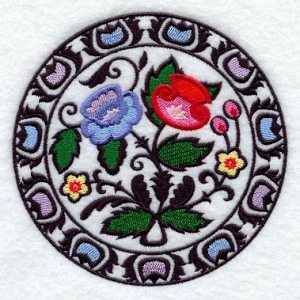 It was the following Tuesday before I felt well enough to go back to work, but I still didn’t feel up to doing much apart from contemplating firing Tomek for his failure to come to his boss’s aid in his hour of need. Nobody else seemed to be in the mood for work, either. Tomek and his wife Hania were sitting at one of our big draughting tables, sketching. Agnieszka was doing some embroidery. All the momentum had gone out of the office.
It was the following Tuesday before I felt well enough to go back to work, but I still didn’t feel up to doing much apart from contemplating firing Tomek for his failure to come to his boss’s aid in his hour of need. Nobody else seemed to be in the mood for work, either. Tomek and his wife Hania were sitting at one of our big draughting tables, sketching. Agnieszka was doing some embroidery. All the momentum had gone out of the office.
At one point, Agnieszka brought me a coffee and then held up the piece of cloth she’d been working on. I looked at it. Then I looked at her.
“What?” I said.
“What do you think of it?” she asked.
It was an embroidered image of some species of rustic scene. Not very well embroidered. “Very nice,” I told her. I raised my voice. “Everybody?”
The rest of the office raised their heads from whatever they’d been doing. Bartek Kowalski appeared to have been sculpting something from a chunk of styrofoam packing block
“Go home,” I told them. “We’re not getting anything useful done. Go and get this out of your system and let’s come back tomorrow with our minds on the job, please. Okay? Now go.”
Everyone started to get up and gather their things together and get their coats. Agnieszka stayed where she was. “Did you mean it?” she asked.
“Yes,” I said. “Go home. Get some sleep. Whatever.”
“No,” she said, holding up the piece of embroidery. “Do you really like it?”
“It’s lovely,” I assured her. “Now go. Get out of here. I’ll lock up.”
After everyone had gone I sat in the office for a while, feet up on my desk, head tilted against the back of my chair. The German ergonomicists, who I had been assured by the salesman had developed this model of chair, had not countenanced anyone treating their furniture in quite this way, so it was more than a little uncomfortable and after a while I took my feet down off the desk and got up and wandered through the office. I had not, I realised, yet shaken off the sense of loss I’d felt when Marcin’s hangover tablet — cognitive enhancer, whatever — wore off. Which was rather alarming. My history of recreational drug use had never been very illustrious or — Marcin’s occasional little gifts apart — adventurous. It had never affected me like this before. I felt vaguely heartbroken.
I locked up the office and went to the cinema and watched Wajda’s Katyn again. It suited my mood. After the film, I bumped into a couple of designers I knew in the foyer and we went to a restaurant, where I tried to work up some enthusiasm for the food, and afterward we went on to a party. Not a hit-and-run but a civilised drinks party, responsible professionals, canapés, darkwave playing quietly on the Bang & Olufsen so as not to disturb the neighbours. The host and hostess, who I knew slightly, were showing their guests some quite spectacularly-bad watercolours they’d done, and when they asked me what I thought of the paintings I smiled and nodded and said, “Very nice.”
The hostess looked critically at me. “You don’t look very happy, Jarek,” she said.
“I’m fine, Iwona,” I told her. “I’ve had flu.”
“Ah,” she said. “You should try one of these.” And she took from her pocket a familiar-looking little plastic envelope and handed it to me.
“Where did you get this?” I asked.
“At the University,” she said. “One of the Sociology Faculty was handing them out. He said it was some kind of experiment. You know, something about whether you’d take drugs from a stranger.” She laughed. “Of course, he’s not a stranger so I didn’t count, but he gave me a few anyway. Try it. He said it was just vitamins.”
I opened the envelope and tipped its contents into the palm of my hand. It was a round, floppy tablet just like the one Marcin had given me, but someone had printed a clockface on this one. The hands of the clock stood at five to midnight.
I smiled at Iwona and put the pill back in the envelope. “I already tried one, thanks,” I said.
When I arrived at the office the next morning, there was a styrofoam sculpture of a cat sitting on my desk.
*☼*☼*☼*
The weeks went by and we rolled into October and then November. It rained. Gales blew in off the Baltic. Then it snowed. In the office, the staff and partners managed to curb their collective artistic urges and we got our heads down and did some serious work on our outstanding projects. I managed to become so engrossed in my work that I hardly ever thought about Marcin’s hangover pill.
It was somewhat harder to forget about the floppy pill, though, because it was on the news. People were calling them, reasonably enough considering what was printed on them, ‘clocks,’ and they seemed to be everywhere. Nobody seemed to have the slightest idea where they were coming from, but they were turning up all over Poland and Germany and the Low Countries and even in London. The authorities — who still hadn’t managed to get hold of one for analysis — were warning people not to take them. There were stories of people holding clock parties. One op-ed piece in a magazine ventured the utterly charming theory that the clocks were in fact completely harmless and part of a huge sociological experiment into the way new drugs spread through a society. There was said to be a mild euphoric effect after taking them, but this could be ascribed to the latent suggestibility of the human mind. It was actually charming enough to be plausible.
I seemed, meanwhile, to have gained a minor reputation as some kind of critic, because Tomek’s sister and Hania’s father and half a dozen other family members and friends of the staff and partners had taken to visiting the office and leaving me paintings and poems and CDs of music and strange pottery shapes for my opinion, which was baffling but ever so slightly gratifying. As the weeks went on more and more of this stuff arrived, along with its penitential amateur artists, until one morning around the beginning of December I quipped to Tomek something along the lines that I hadn’t realised my colleagues had so many relatives and he answered that it had been some weeks since he or anyone else in the office had recognised any of the artists.
“We all thought you knew them,” he said.
That was when I phoned Marcin’s employers to try and find out where he was. They told me he was on a sabbatical, but a few days later I was visited by a very polite young man who said he worked for the Ministry of Public Health and was interested in speaking with anyone Marcin had been in contact with while he was in Poland. We talked for a very long time about generalities — did Marcin seem ill, at all? Was anyone with him? Did Marcin, perhaps, use any medication while he was with me?
I answered the polite young man’s questions as truthfully as I could, short of mentioning the hangover pill and the clock. Did Marcin, perhaps, discuss his work at all? He certainly did. Did Marcin, perhaps, express any strong anti-social opinions? He did not. Did Marcin, perhaps, express any strong religious views?
At this point I stood up and told the polite young man that I didn’t see what Marcin’s religious views had to do with the Ministry of Public Health, and the polite young man agreed that they didn’t and proceeded to arrest me.
*☼*☼*☼*
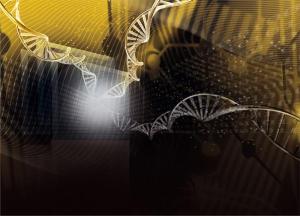 I’m very well-connected these days. I can open my phone and speed-dial the chiefs-of-staff of half a dozen European Prime Ministers and Presidents (including the President of the European Union and his wife) and be put through immediately. Except the President of Albania, who took personally my description of his latest novel as ‘infantile.’ But he’ll be back. They always come back.
I’m very well-connected these days. I can open my phone and speed-dial the chiefs-of-staff of half a dozen European Prime Ministers and Presidents (including the President of the European Union and his wife) and be put through immediately. Except the President of Albania, who took personally my description of his latest novel as ‘infantile.’ But he’ll be back. They always come back.
A few years ago, I was not nearly as well-connected. But I knew someone who knew someone who knew someone, and there was a cascade of favours owed and favours paid and I have no idea how it all worked out for the individuals involved, but at the end of it all I was sitting in a white room in a prison just outside Antwerp, where Marcin was just beginning a forty-year sentence on terrorism charges, with a side-order of industrial espionage.
“My lawyer’s going to drive a fucking truck through this,” he told me. “They’ve totally misused the anti-terror legislation.”
“Who’d have thought the Belgians would have been so vindictive about you stealing their patents and handing out their drugs on the street?” I deadpanned.
Marcin glowered at me. He was sitting across the table from me, wearing a bright orange jumpsuit of the kind made infamous by Guantanamo inmates. He was also wearing a complicated chain-and-handcuffs arrangement which meant that he had to walk in a kind of hunched-over shuffle and couldn’t raise his hands above his waist. I thought the chains were overkill, but maybe the Belgians still hadn’t finished making their point.
“Genetics,” I said.
“Oh, you want to talk about it now, do you?” he said. He looked at the large guard who had accompanied him into the room and then taken up impassive station in the corner. “And you can fuck off,” he told the guard. The guard ignored him. Marcin tried to rub his eyes, but the chains pulled his hands up short. “Fuck,” he said.
“Genetics,” I said again. “I’m serious, Marcin. What have you done?”
He looked at me. His hair was longer than I remembered, and it was crumpled up on one side as if he’d been asleep when they came to bring him to the white room and they hadn’t given him any time to comb it. His eyes were red-rimmed and his nose was running.
“Mirek Sierpinski,” I said. “Tutu.”
He sighed and seemed to crumple a little in his jumpsuit. “Where does creativity come from?” he asked.
“I don’t know,” I said.
“Well,” he said. He sighed again. “The science is complicated.”
“Don’t you dare patronise me,” I warned.
He shrugged. “There’s a genetic mutation which, basically, codes for creativity. A few years ago it was thought that about fifty percent of people carried it, but it turns out the figure’s a lot higher than that. Somewhere in the ninety-nine point nine nine nine percent. Everyone’s carrying the mutation. Pretty much.”
He paused, and I leaned forward slightly. “Marcin,” I said again, “what have you done?”
“Okay.” He tried to rub his eyes again, got pulled up short by the chains again, shook his head. He looked at me. “So everyone has the creative mutation — which also causes schizophrenia and psychosis in some cases, by the way — but the world isn’t flooded with artists. Why is that? Why didn’t Tutu’s parents pass the mutation on to her? Well, god help them, they did. But Tutu has another genetic mutation which…” He looked at me. “This next bit’s a little vague.”
“It’s better than nothing,” I told him.
He thought about it for a few moments. “There’s a mutation of another gene which makes people want to be creative.” He watched the look on my face. “I know, it doesn’t seem a like a distinction at all, does it? But it’s an important one. Tutu, if we’re taking her as our model, has the mutation which makes her creative, like almost everybody, but she lacks the mutation which makes her want to do anything about it.”
“She’s been writing poetry,” I said. “It’s been in the papers.”
He raised an eyebrow. “Any good?”
“It’s some of the worst poetry I ever read.”
He looked at me strangely and, I thought, rather slyly. “Well, there you go,” he said. “Talent remains an unquantifiable thing, a complete mystery. Nobody’s found the mutation for that yet. But the impulse is there. I’ll bet you … oh, a lot of money that she doesn’t go to quite so many parties from now on. Have you got any paper?”
“I’m sorry?”
“Paper. Oh, never mind.” He looked at the guard. “Could I have some paper, please?”
The guard went over to a cupboard in the corner of the room, unlocked the door, and took out a pad of scrap paper, with which he returned to the table. Marcin’s chains just about allowed him to reach the tabletop and tear a sheet off the pad.
“What did you give me?” I asked.
He was folding the sheet of paper corner-to-corner and smoothing the crease down with his thumbnail. “Eh? Oh, the active ingredient was MDMA.”
“You gave me Ecstasy?”
“A mild dose. But very pure.” He unfolded the paper, folded the opposite corners across, and creased them down. “A really mild dose. Nobody would want to take it if it didn’t make them feel good. But the payload, the thing that gives the clocks their gong fu, is a virus.”
I was not even remotely unprepared for this. After the polite young man arrested me I had been taken to a rather grim building on the outskirts of town, not far from the airport, where I was told to sit in a room not unlike this one and I was questioned for almost fifty hours, singly and in groups of anything up to five, by a large number of people who were not polite at all. None of them actually came out and said it, but by putting all their individual questions and accusations together it seemed to me that they believed Marcin was guilty of releasing some kind of biological weapon and was now on the run.
Finally — I suspect they had found Marcin and arrested him, because we had not even begun to scratch the surface of places I might think he was hiding — I was led out of the room, down a corridor, out of the building and into a waiting taxi, which took me home. No one said goodbye or thank you or ‘don’t even think of going to the media about this,’ from which I gathered they were either very excited or very nervous now they had Marcin.
When the taxi delivered me at my building, there was a small crowd of artists and writers waiting around the front entrance.
“The virus rewrites your genome,” he went on. “It inserts the mutation which predisposes people to want to be creative.”
“You absolute bastard,” I said. “How dare you do that.”
He looked up from the sheet of paper, which had ceased to be rectangular and was now a frantically-complicated landscape of pleats and folds. “I thought it was worth a try,” he said.
“You thought it was ‘worth a try’?” I yelled with enough violence to make the guard shuffle his feet.
Marcin went back to the sheet of paper. “Do you know what the problem is with modern society?”
“Too many fucking scientists?” I said in a very loud voice.
He sniffled and shook his head. “Too much time on our hands. The human race is, on the whole, all right.” He looked at me. “We’re fine, Jarek. Nice people. Wouldn’t hurt a fly, most of us. But there’s a tiny percentage of people who are not fine. The world is not full of assholes, but the assholes run the world. They need something else to do.” He folded a corner of the thing he was working on into a pocket formed by two other folds and smoothed it down. “I’ve given them something else to do.”
“Hitler was a painter,” I said.
“Hitler was a maniac. He didn’t have the second mutation. He didn’t want to paint enough to stop him being a maniac.”
I glared at him. I kept glaring at him until he noticed and looked up from whatever he was doing with the sheet of paper.
“I had flu,” I said.
“That wasn’t really flu. That was your immune system trying to reach an accommodation with the virus,” he said. “You’ll have been fanatically infectious for the four or five days before your symptoms presented.”
“Bastard,” I said.
He smiled sunnily. “Relax,” he told me. “You were never in any danger. You’re quite unusual, having that reaction. Most people won’t even realise they’ve been infected until they start being creative.”
“I don’t feel creative,” I said.
His fingers paused in their manipulation of what I had long since ceased to regard as a simple sheet of paper. “That, Jarek, is because you’re immune,” he said. “You’re among a vanishingly-small percentage of the population who don’t have the original creative mutation.” He smiled at me. “I know, I know. You’ve done good work, good creative work. But you’ve done it despite being entirely undisposed to creativity. You’ve done it, effectively, by being a very good manager. Now, you think back and try and remember how much of that work actually originated with you, and how much originated with other people.”
I thought of none of those things. I just stared at him and thought of murder.
“I’ll bet,” he said, making another fold, “that if you think back far enough, you’ll remember that people were always coming to you with poems and paintings and photographs and asking what you thought of them. Because people with the mutations subconsciously recognise the people without them and realise they can give an objective valuation. I don’t know why that happens. Pheromones, maybe. Or body language. Hard to see how it could have evolved, but there you go, the wonderful world of Nature, eh?”
“Is there a cure?”
He shook his head, then stopped himself. “Well, yes, theoretically. Gene therapy to repair the mutation introduced by the virus, but it’s tricky and you don’t want to release it into the population until you’re sure how it’ll work in the wild.”
“Like you did.”
“I was as sure as I could be.” He finished whatever he had been doing to the sheet of paper and held it up between his finger and thumb, a ridged little pill of paper the size of a pea and the shape of a grain of rice. “It could take years to develop the right gene therapy, and in six months nobody will care any more. The world’s going to be full of artists, Jarek.” He grinned at me and relaxed his thumb and forefinger, and the pill of paper sprang gently open as its fibres were released and it bloomed into the figure of an armoured knight on horseback, all rendered in fabulously-complex folds. Brave new world. “What do you think?”
“What’s going to happen to the people who aren’t affected by the virus?” I said.
He looked a little cross. “You could always become critics,” he said, gesturing with the origami knight. “What do you think?”
Marcin’s trial was held in camera and the details were never made public. What else I know comes from patient work down the years, from favours called in and contacts made, from hundreds of manuscripts read and plays watched and arias listened to in return for snippets of information.
The original purpose of the virus had been for occupational therapy — it was meant to be used on accident victims and the survivors of serious trauma, making them want to take part in creative activities as part of their recovery. Paint medication. Medication that makes you want to paint.
But viruses are fiddly things to work with and you can’t always get them to do quite what you want, and by the time Marcin and his colleagues stepped back and looked at what they had created they realised it was incredibly virulent. A doctor infecting a trauma patient with it would wind up infected himself, as would nurses and other nurses and other doctors and other patients and their families and people on public transport … and so on.
Marcin’s team decided it was just too contagious to release and they put it away and went off to think about what to do next. But Marcin — and I can’t know this for sure but in my imagination it’s the only way it could have happened — Marcin didn’t go away. He stood and looked at the jar or the vial or the box or whatever the hell they locked the virus up in, and he tipped his head to one side and he saw possibilities.
The lab Marcin worked in was very well-designed. It was, actually, impossible for someone to infect themselves, by accident or deliberately, without setting off alarms, but you can have the best security system in the world and it’s still only built by people, and nothing built by people is ever perfect.
He got the virus out of the lab by infecting himself, then he took a holiday. In a lock-up garage in Ghent, which he’d kitted out with equipment bought from various medical and scientific supply houses around Europe, he isolated the virus from his blood. Then while he was still contagious, he set off on a five-day tour of Europe’s major airports.
He shook a lot of hands and bought a lot of airport coffee with coins and banknotes liberally smeared with his sweat. He sneezed on a lot of duty-free bottles of perfume and alcohol and squeezed a lot of those fluffy toys you get in airport gift shops and checked a lot of souvenir teeshirts to see if they were his size. I’ve seen some of the security video of him at Heathrow and Schiphol and Orly, and when you look at it all together it’s rather comical, until you remember what he was doing.
He was very sly; he knew a small percentage of infected people would present with flu symptoms, so he timed his five-day excursion so that the symptoms would be lost in the general seasonal flu. In the Southern Hemisphere, outside flu season, they caused brief alarm but nothing more.
Finally, not infectious any more, he returned to Ghent, where he started to manufacture clocks as another way to spread the virus. A member of the Belgian Secret Service said they had no idea how many clocks he’d finally been able to make, but checking back with the suppliers who sold him his raw materials the number could have been in the tens of thousands. By the time they finally caught up with him in Biarritz, it was already too late.
And one thing Marcin said was absolutely right. By the time I had assembled the full story, nobody cared any more. Virtually everyone on Earth had been exposed to the virus.
And by then I was on the road. The trickle of people wanting my opinion of their work, by word of mouth or pheromones or body language or god only knows what else — had become a torrent. I was besieged at home. I was getting letters and emails and phone calls from all over Europe, promising me unholy riches if I’d only come and see their play or read their book or sit through their operetta.
The only way to stay sane, I thought, was to go to them.
*☼*☼*☼*
 Sometimes, we bump into each other. In Eindhoven or Alençon or Cologne or Madrid or one of the little towns inbetween. You’ll be sitting in the restaurant of another free hotel, eating another free meal, and you’ll raise your head and there across the dining room you’ll see someone else with weary, haunted eyes from too many hours watching the roads unwind, too many hours spent giving their honest opinion of oil paintings and watercolours and sculptures and happenings and films in too many genres to list properly. And they’ll raise their head too and your eyes will meet, and you’ll nod to each other.
Sometimes, we bump into each other. In Eindhoven or Alençon or Cologne or Madrid or one of the little towns inbetween. You’ll be sitting in the restaurant of another free hotel, eating another free meal, and you’ll raise your head and there across the dining room you’ll see someone else with weary, haunted eyes from too many hours watching the roads unwind, too many hours spent giving their honest opinion of oil paintings and watercolours and sculptures and happenings and films in too many genres to list properly. And they’ll raise their head too and your eyes will meet, and you’ll nod to each other.
Surprisingly often, that’s as far as it gets. You’ll nod to each other, then go back to your meals, there in the dining room with walls covered with execrable oil paintings done by the manager or the waitress, and you’ll go back to your rooms afterward, and in the morning you’ll tell the manager or the waitress what you think of their paintings. And then you’ll leave, separately, without ever having exchanged a word.
Sometimes, though, we do speak. In Basle I met an English girl named Caroline, who had been a bond trader in London, back in the days before her friends started bringing their drawings into the office and asking her what she thought of them.
Caroline and I travelled together for a while. We drove down into Italy, visited Florence, where she told me about Stendahl Syndrome, a condition which apparently affects visitors to the city, the sheer beauty of the place simply overwhelming them, making them giddy. Neither of us experienced any symptoms, which I thought pretty much said it all.
In Turin, we had an argument over the relative merits of an enormous landscaped garden in the grounds of a villa belonging to a man who was rumoured to be a Capo di tutti capi. He had apparently abandoned his other activities in order to concentrate on his garden. I thought the result was utterly laughable, a fatal collision of styles from ancient Rome to Capability Brown. Caroline was entranced. Later, at our hotel, we argued violently, and the next morning Caroline drove off in a brand-new Mercedes provided by the alleged Capo. I found a Peugeot dealer who was composing enormous, bombastic rock operas. I told him his latest magnum opus was marvellous, and left in a new car. I sometimes check out Caroline’s blog, where she delights in spreading poison and lies about me.
How many are we, those of us with the fatally-absent mutation? More than Marcin thought, but less than you might expect. In Europe there are probably a couple of thousand. Enough to fill a village, say. Around the world, maybe a couple of million. A lot of us blog, although I do not.
It’s not such a bad world, this world of clocks. There is, in truth, much art that is astonishing. Some of it is breathtaking. Generals are writing novels that, before the clocks, would have gone down in literary history. Shopgirls are producing art that challenges Leonardo and Titian and Hirst. In Caen I sat through an oratorio by a ten-year-old schoolboy which had tears running down my cheeks.
As Marcin said, all these works were already there, in a sense, in the minds of their creators. Clocks don’t make someone a great artist; what they do is unlock the impulse, conquer the writer’s block, provide the enthusiasm. They’ve rewritten our genome so that we want to be artists.
We — I should say they — don’t want to be artists to the exclusion of all else. That would be a world out of a nightmare. Everyone carries on with their normal lives and jobs; they just want to spend their free time creating art.
This has had some interesting side-effects. On the whole, people have better things to do with their free time than hating each other or worrying about geopolitics, and warfare around the globe has dwindled away to almost nothing. I say ‘on the whole’ and ‘almost nothing,’ because there is a small civil war going on in the Czech Republic between two groups of Dadaists over an invisibly-fine splitting of hairs about the direction of the movement, and an entirely incomprehensible insurgency in Britain which seems to revolve around the definition of science fiction. That one may be running down; a number of us posted an announcement online to the effect that we would boycott Britain until things calmed down, and calm of a kind appears to be returning. At any rate, it’s been several weeks since there have been fatalities.
In odd moments, on autobahns and motorways and autostrada and in the first-class lounges of airliners, I think about Marcin and his brave new world. He said he thought that Humanity as a whole was not so bad, that it was only the occasional asshole who gave us a bad name, and now and then, when I’m not listening to someone’s symphony or reviewing a novel or trying to work out whether an hallucinogenically-Turneresque watercolour has actually been hung the right way up, I do wonder whether he hasn’t been largely successful. And if he has, it occurs to me that we, the critics, are the most dangerous people on Earth, because we are not distracted by the imperative to create. If we wanted, we could rule the world. And then it usually occurs to me that we do rule the world, in a way. And yes, it’s very very nice, thanks.
It is still not a perfect world. But it is, by any stretch of the imagination, a beautiful one. Now, if you’ll excuse me, I have to get some sleep. Tomorrow I have to drive to Barcelona and tell a surrealist sculptor what I think about his new work, which in photographs appears to be made entirely from human toenail clippings.
“Dalí’s Clocks” by Dave Hutchinson. Copyright © 2010 by Dave Hutchinson.
Picture credits:
- Gdansk Newish Block of Flats: via Gdansk.me;
- School bully 1: via Smarter babies & kids blog;
- Wild party: via Naturpark Zillertal;
- ‘Baltic Baroque’ via Travelblog (originally from Mark & Kelly Turner) ;
- Chill Pill via JenandTommy;
- thumbs up and fish pill: via Casa Consum;
- Polish Circle: via Sarah’s Baby Boutique;
- Styrofoam Cat: via Susan Garvie;
- Genetic Mutation: Artistic illustration of a phylostratigraphy. (Credit: Irena Andreic, Ruđer Bošković Institute, Zagreb) (via Science Daily);
- Origami Knight: via H5 Dion;
- Landscape Garden 1: via DeVross Estates;Styrofoam Cat: via Susan Garvie;
- Nail Clippings 1: via Above the Orange Trees;
- David Shrigley – Five Years of Toenail Clippings, 2002: via American Digest (or directly via David Shrigley);
- Toenail Spoon: via Stumble Upon;
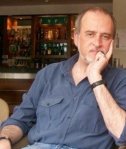 Dave Hutchinson was born in Sheffield in 1960. He’s the author of one novel and five collections of short stories and the editor (with John Grant) of Strange Pleasures 2 and (on his own) of Strange Pleasures 3 and Under The Rose. His stories have appeared in Interzone,SciFiction, Revolution SF, Infinity Plus, the Lou Anders-edited anthology Live Without A Net, and the Ian Whates-edited anthologies Celebration and Subterfuge. His most recent publication was “The Push”, a novella, from Newcon Press. He lives in North London with his wife, Bogna, and their cats, and he works as a journalist.
Dave Hutchinson was born in Sheffield in 1960. He’s the author of one novel and five collections of short stories and the editor (with John Grant) of Strange Pleasures 2 and (on his own) of Strange Pleasures 3 and Under The Rose. His stories have appeared in Interzone,SciFiction, Revolution SF, Infinity Plus, the Lou Anders-edited anthology Live Without A Net, and the Ian Whates-edited anthologies Celebration and Subterfuge. His most recent publication was “The Push”, a novella, from Newcon Press. He lives in North London with his wife, Bogna, and their cats, and he works as a journalist.

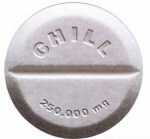
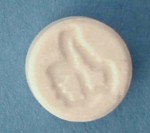
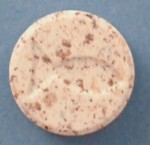
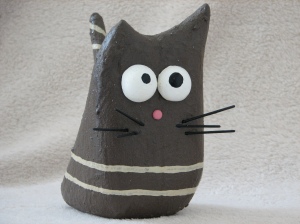
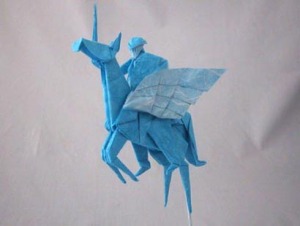
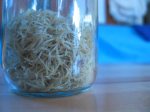
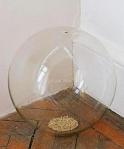
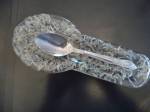













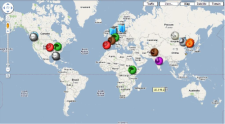
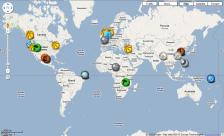
Pingback: Tweets that mention DayBreak Fiction: “Dalí’s Clocks” « DayBreak Magazine -- Topsy.com
Pingback: The Great Geek Manual » Free Fiction Round-Up: January 25, 2010
Just read your story- very wry- liked it alot.
Will you be at Odyssey?
Pingback: Free SF Reader
As the Crow Flies is indeed a fine collection.
Pingback: Awards Pimpage: DayBreak Stories | DayBreak Magazine